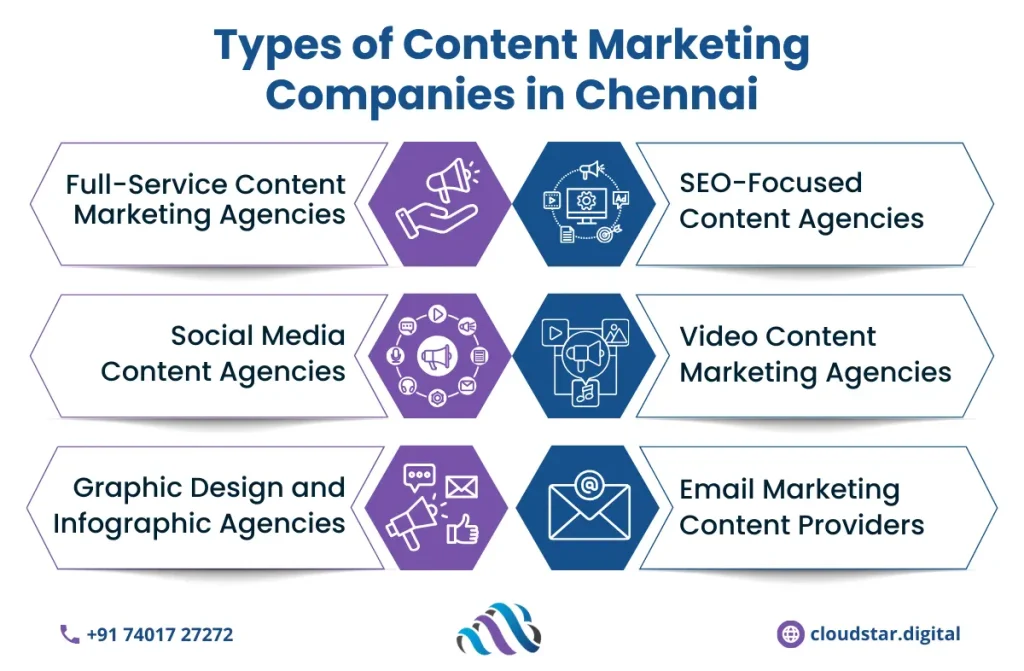In the ever-evolving digital landscape, where online presence is paramount, businesses in Chennai are recognizing the importance of effective content marketing local seo strategies. A robust content marketing plan, crafted by a reputable content marketing company in Chennai, can significantly enhance brand visibility, engage the target audience, and drive conversions. For businesses in Chennai looking to elevate their content game, partnering with a reliable content marketing company is crucial. In this article explore, we’ll explore the key considerations when choosing a content marketing company in Chennai and how it can transform your digital presence.

What is Content Marketing?
Content marketing is a strategic approach to creating and distributing valuable, relevant, and consistent content aimed at attracting and retaining a clearly defined audience. Rather than directly pitching products or services, content marketing involves delivering information that solves problems, educates, and engages your target market.
Content marketing is a strategic approach focused on producing and sharing valuable, relevant, and engaging content to attract and retain a targeted audience, ultimately driving profitable action. Here’s how it operates, particularly in the context of Chennai:
1.Value-Driven Content Creation: Focuses on delivering content that is valuable and useful to the audience, enhancing trust and credibility.
2.Audience Engagement: Aims to engage and retain the audience by aligning content with their interests and needs.
3.Brand Authority: Establishes the brand as a thought leader or authority in its field, building consumer confidence.
4.Profitable Customer Action: Encourages actions from the audience that lead to sales and other business goals.
5.Local Connectivity in Chennai: Tailors content to resonate with the local culture, preferences, and content marketing trends in Chennai, facilitating stronger local engagement.
6.Beyond Direct Promotion: Prioritizes providing helpful, informative, or entertaining content over direct brand promotion, fostering deeper connections.
Purpose of Content Marketing
The purpose of content marketing extends far beyond simply promoting products or services. It is about delivering value that resonates with your audience, resulting in long-term relationships and customer loyalty. Below are some key objectives of content marketing:
- Brand Awareness: Educating potential customers about your brand’s existence and values.
- Lead Generation: Attracting potential leads by offering relevant and insightful content.
- Engagement: Encouraging interaction and creating a two-way communication channel with your audience.
- Customer Retention: Providing continuous value to keep customers coming back to your brand.
- Authority Building: Establishing your brand as a thought leader in the industry through informative and high-quality content.
Content Marketing With cloudstar Digital chennai
- Tailored Content Strategies: Cloudstar Digital creates personalized content strategies aligned with your business objectives and target audience. They focus on developing content that resonates with your customers and drives engagement.
- High-Quality Content Creation: The agency produces a variety of content, including blog posts, articles, infographics, and videos, ensuring high quality and relevance to capture and retain audience attention.
- SEO Integration: Cloudstar Digital incorporates SEO best practices into their content to improve search engine rankings and enhance visibility, driving more organic traffic to your website.
- Performance Tracking: The agency uses advanced analytics tools to monitor content performance, measure engagement, and adjust strategies based on data insights to maximize the effectiveness of your content marketing efforts.
- Multi-Channel Distribution: They leverage multiple platforms, including social media, email, and your website, to distribute content effectively and reach your audience across various channels.
- Brand Consistency: Cloudstar Digital ensures that all content maintains a consistent brand voice and messaging, reinforcing your brand identity and fostering trust with your audience.
By partnering with Cloudstar Digital, Chennai, you can enhance your content marketing efforts and achieve meaningful results through strategic, high-quality content tailored to your business needs.
Types of Content Marketing
Content marketing offers a wide array of formats, each tailored to different audience preferences. Whether it’s blogs for in-depth insights, videos for visual engagement, or social media posts for daily interaction, there’s a format for every marketing goal.
Here’s a look at the most popular content types and how they can be utilized for content marketing in Chennai:
1.Social Media Posts
With billions of active users, social media is a prime platform for content marketing. Social media posts, whether on Facebook, Instagram, LinkedIn, or Twitter, offer a quick and cost-effective way to share bite-sized content with a broad audience.
Advantages of Social Media Posts:
- Quick engagement: Short, engaging posts are easily consumable by your audience.
- Brand visibility: Frequent updates on social platforms keep your brand top-of-mind.
- Two-way interaction: Engage with your audience in real-time through comments, shares, and likes.
Social media posts should be concise and visually appealing, often incorporating images, videos, or graphics to capture attention. With the right strategy, a content marketing company in Chennai can leverage social media to amplify your brand’s message and increase engagement.
2. Blogs
Blogs are a foundational element of content marketing. They allow you to dive deep into topics relevant to your industry, educate your audience, and showcase your expertise. Blogs are particularly effective for B2B content marketing as they often address the more complex needs of business clients.
Benefits of Blogging:
- SEO benefits: Well-optimized blogs can rank higher on search engines, driving organic traffic to your site.
- Lead generation: Blogs can include calls-to-action (CTAs) to convert readers into leads or customers.
- Educational value: A well-written blog educates your audience, helping them make informed purchasing decisions.
For businesses in Chennai, incorporating local keywords and optimizing for search engines through local SEO consultant services ensures that your blog attracts relevant traffic, especially from local prospects.
3. Infographics
Infographics are a visual way of presenting data, statistics, or processes in an easy-to-understand format. They combine graphics, images, and minimal text to communicate information quickly, making them a powerful tool for content marketers.
Why Infographics Work:
- Visually appealing: People are more likely to engage with visual content than with text-heavy articles.
- Shareable: Infographics are easily shareable across social media, blogs, and websites, increasing your content’s reach.
- Complex data made simple: They simplify complex topics, making it easier for your audience to digest the information.
Partnering with a content marketing company in Chennai can help you design high-quality infographics that resonate with your target audience and boost engagement across multiple platforms.
4. Videos
Video content is one of the most engaging formats available, allowing businesses to convey information in a highly interactive way. Videos can range from tutorials and product demos to customer testimonials and live streaming.
Advantages of Video Content:
- Higher engagement: Video content is more likely to capture and retain your audience’s attention compared to written content.
- Emotional connection: Videos allow you to connect emotionally with your audience, which increases trust and loyalty.
- Versatility: Videos can be shared across social media, embedded in blogs, or used in email campaigns.
For a more comprehensive approach, a content marketing company in Chennai can create a B2B content marketing strategy that integrates videos into your marketing mix to generate leads, explain complex concepts, or showcase case studies.
Advantages of Content Marketing Company in Chennai

Chennai, a vibrant hub of business and technology, has witnessed a surge in the demand for content marketing services. The city’s diverse industries, from IT to manufacturing, are seeking innovative ways to connect with their audiences.
- A content marketing company in Chennai is uniquely positioned to understand the local market dynamics and tailor strategies that resonate with the city’s audience.
- Content marketing in Chennai gives businesses the advantage of working with professionals who understand the nuances of the local culture and can create content that strikes a chord with the target demographic.
- The synergy between global best practices and local insights makes Chennai an ideal destination for businesses looking to invest in content marketing.
Conclusion
Selecting the right content marketing company in Chennai is a pivotal strategic decision that profoundly influences your business’s online presence and success. When making this choice, prioritize factors such as expertise, ensuring the company possesses a deep understanding of your industry and target audience. Look for providers offering customized solutions tailored to your specific business objectives, ensuring a personalized approach to your content strategy.
Read also: Digital marketing for doctors


